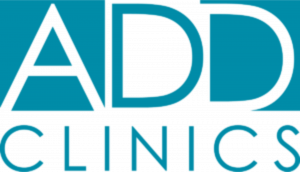Understanding How ADD Manifests Across Childhood, Adolescence, and Adulthood
While ADD is often associated with childhood, clinical observations confirm that its symptoms persist across adolescence and into adulthood. However, the ways in which these symptoms present can change significantly with developmental stages and life demands.
Dr. Stanford Owen, owner of ADD Clinics in Gulfport, Mississippi, emphasized the importance of age-specific understanding when evaluating and treating ADD.
“Symptoms of ADD are not static throughout life," said Dr. Owen. "What appears disruptive or obvious in a child may evolve into more internalized challenges in teenagers and adults. Recognizing the shifting nature of ADD symptoms allows for more effective support and better long-term outcomes."
In childhood, ADD commonly presents through overt behaviors. Children may struggle to sit still, follow instructions, complete tasks, or regulate impulsivity. Teachers often notice early signs in the classroom, where expectations for sustained attention and task management are introduced. Forgetfulness, daydreaming, difficulty with homework, and frequent interruptions during conversations are among the hallmark indicators.
Social challenges can also emerge, as impulsivity and distractibility may interfere with peer relationships. Children with ADD may have trouble taking turns, respecting personal boundaries, or maintaining conversations, leading to feelings of social isolation or frustration. Early intervention is critical, as untreated ADD can impact academic achievement and emotional development.
As individuals move into adolescence, ADD symptoms often shift. Hyperactivity may diminish or become more subtle, while challenges related to attention, organization, and emotional regulation become more pronounced. Teenagers with ADD frequently struggle with managing increasingly complex academic workloads, prioritizing assignments, and maintaining focus in longer or less structured classes.
Social pressures also intensify during adolescence. Teens with ADD may experience heightened impulsivity, leading to risk-taking behaviors, difficulty maintaining friendships, or conflicts with authority figures. Emotional volatility can surface, often resulting in frustration, anxiety, or depression, particularly when academic struggles or social setbacks occur.
Executive function — the brain’s ability to plan, prioritize, and organize — becomes more critical during adolescence, and deficits in this area are often where ADD becomes most problematic. Without proper support, teens with ADD may underperform academically, despite strong intellectual capabilities, and may begin to internalize feelings of failure or inadequacy.
In adulthood, ADD symptoms often evolve yet again. Hyperactivity typically recedes, but inattentiveness, disorganization, time management difficulties, and impulsivity often persist. Adults with ADD may struggle with sustaining focus during long meetings, completing projects without last-minute rushes, remembering appointments, or maintaining orderly living spaces.
Professional and personal relationships can also be affected. Difficulty managing responsibilities, forgetting commitments, or making impulsive decisions can lead to workplace challenges, financial instability, or relational tensions. Many adults with ADD develop compensatory strategies without realizing the underlying cause of their difficulties.
In some cases, adults seek help only after their children are diagnosed, leading to a retrospective understanding of long-standing personal struggles. Diagnosing ADD in adulthood requires careful evaluation, as symptoms may be mistaken for anxiety, depression, or general stress without proper clinical assessment.
Dr. Owen noted that adult diagnosis often brings a sense of relief and validation.
“Adults who have struggled with disorganization, forgetfulness, or chronic underachievement often find clarity when they receive a formal diagnosis of ADD," Dr. Owen explained. "Understanding the root cause of these challenges allows individuals to pursue targeted treatments and strategies that improve daily functioning and overall quality of life.”
Across all stages of life, individualized treatment plans are essential. Behavioral therapies, medication management, lifestyle modifications, and academic or workplace accommodations can all play a role in helping individuals with ADD thrive.
Early recognition remains a key factor in mitigating the negative impacts associated with untreated ADD. Children who receive appropriate support are more likely to develop strong self-esteem, healthy coping mechanisms, and successful academic and social outcomes. Adolescents benefit from targeted strategies that address executive functioning and emotional regulation. Adults, once diagnosed, often experience significant improvements in occupational performance, relationships, and personal fulfillment when appropriate interventions are implemented.
Ongoing research continues to deepen the understanding of ADD’s complexities, highlighting the importance of flexible, age-appropriate approaches to diagnosis and management. The dynamic nature of ADD symptoms across the lifespan underscores the need for continued public education, clinical awareness, and accessible support systems.
By recognizing how ADD manifests differently in childhood, adolescence, and adulthood, healthcare providers, educators, families, and individuals can work together to create pathways for success at every life stage.
Morgan Thomas
Rhino Digital, LLC
+1 504-875-5036
email us here
Visit us on social media:
Facebook
Legal Disclaimer:
EIN Presswire provides this news content "as is" without warranty of any kind. We do not accept any responsibility or liability for the accuracy, content, images, videos, licenses, completeness, legality, or reliability of the information contained in this article. If you have any complaints or copyright issues related to this article, kindly contact the author above.
Fast Charge Lithium Ion Battery Market to Grow 16.80% by 2032 | CATL, Samsung SDI, CALEB, Tesla, Panasonic
Flywheel Energy Storage System Market to Reach USD 1474.35 Million, With CAGR of 15% by 2032 | Stornetic, Energiestro
Multicenter study on Mechanical Thrombectomy (MT) in first-to-podium research at SAWC Spring/WHS
Kalendarium
Więcej ważnych informacji
 Jedynka Newserii
Jedynka Newserii

 Jedynka Newserii
Jedynka Newserii

Ochrona środowiska

Zielona transformacja wiąże się z dodatkowymi kosztami. Mimo to firmy traktują ją jako szansę dla siebie i Europy
Bez zaangażowania największych firm, które ograniczają własny ślad węglowy, będzie trudno o transformację energetyczną. Jak wynika z danych Europejskiego Banku Inwestycyjnego, w ubiegłym roku 61 proc. przedsiębiorstw z UE zainwestowało w walkę ze zmianą klimatu. Choć z tymi inwestycjami wiążą się zwykle ogromne koszty, część firm traktuje je jako szansę na podniesienie swojej konkurencyjności. Wśród znaczących korzyści podnoszą też kwestię zmniejszania zależności od dostaw surowców energetycznych z innych krajów.
Prawo
Rolnicy z Wielkopolski i Opolszczyzny protestują przeciwko likwidacji ich miejsc pracy. Minister rolnictwa deklaruje szukanie rozwiązań

W czwartek 24 kwietnia pracownicy towarowych gospodarstw rolnych z województw wielkopolskiego i opolskiego protestowali przed Ministerstwem Rolnictwa i Rozwoju Wsi w Warszawie. To już kolejny – po poznańskim – protest, który ma zwrócić uwagę na opieszałość urzędników w związku z zagospodarowaniem zwracanych do Zasobu Skarbu Państwa dzierżawionych gruntów, na których dziś prowadzona jest działalność rolnicza. Minister Czesław Siekierski przyjął delegację pracowników, która przekazała petycję z postulatami wymagającymi pilnych działań urzędniczych.
Prawo
W połowie maja pierwszym pakietem deregulacyjnym zajmie się Senat. Trwają prace nad drugim pakietem

Zgodnie z zaplanowanym porządkiem obrad na posiedzeniu 14–15 maja Senat zajmie się pierwszym pakietem deregulacyjnym, przygotowanym przez Ministerstwo Rozwoju i Technologii. Przyjęty w ubiegłym tygodniu przez Sejm dokument zawiera około 40 rozwiązań, które mają ułatwić prowadzenie biznesu. W ciągu kilku miesięcy efekty mają być odczuwalne dla przedsiębiorców. Jednocześnie trwają już prace nad kolejnymi propozycjami deregulacyjnymi.
Partner serwisu
Szkolenia

Akademia Newserii
Akademia Newserii to projekt, w ramach którego najlepsi polscy dziennikarze biznesowi, giełdowi oraz lifestylowi, a także szkoleniowcy z wieloletnim doświadczeniem dzielą się swoją wiedzą nt. pracy z mediami.






![Europejskie miasta planują wzrost inwestycji w infrastrukturę społeczną. Wydatki na niskoemisyjny transport wciąż są niewystarczające [DEPESZA]](https://www.newseria.pl/files/1097841585/panel-dotacje-foto,w_85,_small.jpg)



.gif)

 |
| |
| |
|